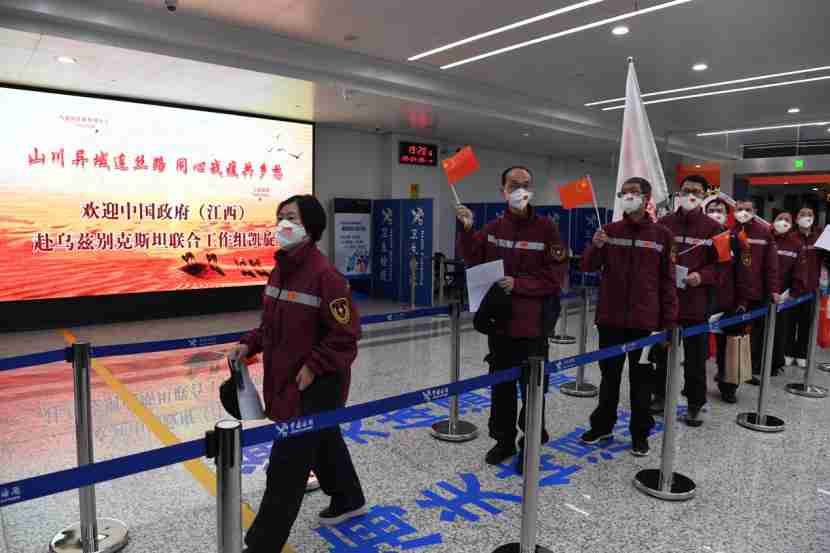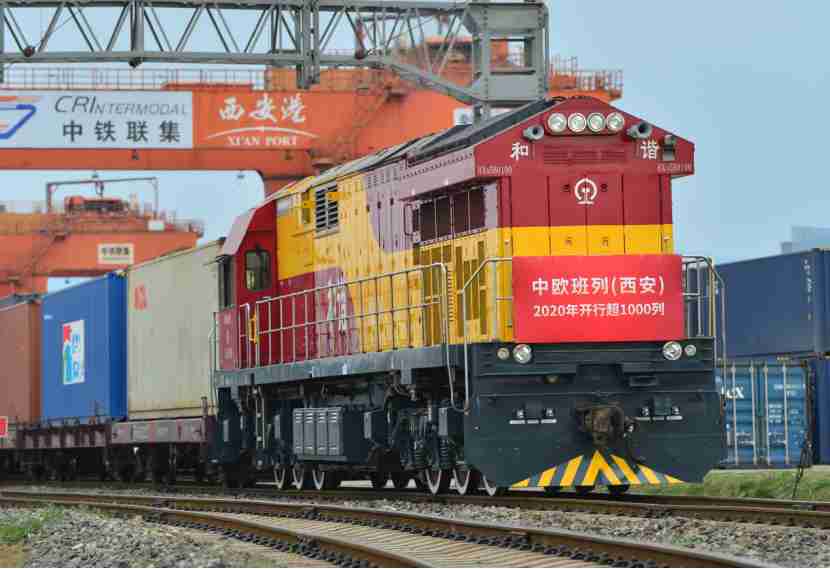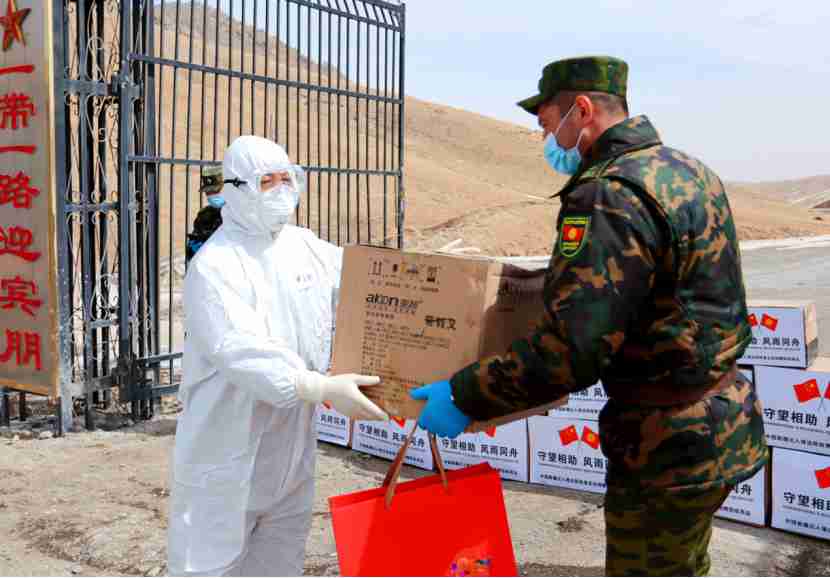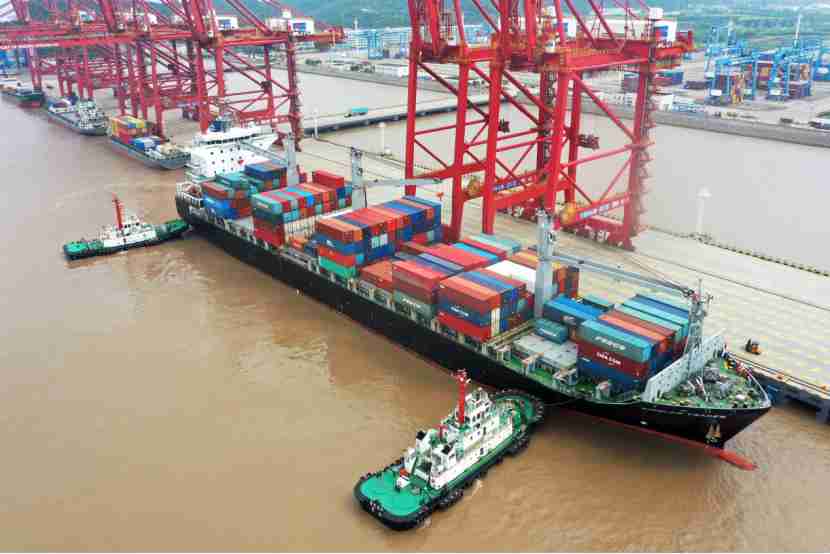

China’s trade volume with countries along the Belt and Road Initiative (BRI) route rose 0.9 percent year-on-year in the first four months of 2020 to 2.76 trillion yuan (about $388.73 billion), according to the latest statistics released by the country’s General Administration of Customs.

Chinese medical team sent by east China’s Jiangxi provincial government to Uzbekistan returns to Nanchang, capital of Jiangxi province on April 28 after completing its mission. Photo by Shi Yu/People’s Daily Online
In the first quarter, Chinese enterprises made non-financial direct investment of $4.2 billion in 52 countries along the Belt and Road, up 11.7 percent year-on-year, said China’s Ministry of Commerce.
Since the onset of the COVID-19 epidemic, China and the Belt and Road countries have been offering mutual assistance and donating anti-epidemic materials to each other.
China has dispatched medical teams to over 10 countries along the Belt and Road, including Iran, Iraq, Serbia, Cambodia, Pakistan and Laos, to assist local efforts in coping with the disease. It also organized teleconferences between Chinese medical experts and foreign medical workers to exchange experiences of epidemic containment.

China-Europe freight train X9003 leaves Xi’an, northwest China’s Shaanxi province for Uzbekistan, carrying 49 containers of refrigerators, tea, lamps, and air compressors, May 6. It is the 1,000th China-Europe freight train leaving Xi’an this year. Photo by Tang Zhenjiang/People’s Daily Online
As the COVID-19 pandemic spreads along the BRI routes, corridors, ports and logistics hubs in Belt and Road countries are now being used to provide medical support for partner countries in need, said Forbes on its website, adding it’s a move which the Chinese side calls the “Health Silk Road.”
China’s offering of medical equipment to the Belt and Road countries via railway at the critical moment indicates a basic function of the interconnectivity network – maintaining the relationship between China and other countries.
Ezzat Saad, director of the Egyptian Council for Foreign Affairs noted that the COVID-19 pandemic once again proved that mankind shares a same future, as well as the necessity to build the “Health Silk Road.” The China-proposed BRI is charting the course for global countries regarding the joint construction of a “Health Silk Road,” he added.
Facing the huge pressure of the global economic downturn, China is actively engaged in anti-pandemic and economic cooperation and exchanges with Belt and Road countries, injecting strong power into the global efforts battling the disease and boosting confidence for the world to vitalize economy.

The general station of immigration inspection of northwest China’s Xinjiang Uygur Autonomous Region donates over 10,000 items of anti-pandemic materials, including protective suits, masks and electronic thermometers to Kyrgyzstan’s immigration department at Torugart port, Xinjiang, April 11. Photo by Zhang Jia/People’s Daily Online
BRI projects haven’t stopped construction, even when COVID-19 is spreading in Belt and Road countries. “Currently, 40,000 Pakistani and 7,000 Chinese workers are performing their duties with dedication. The number of workers indicate the volume of work, which is going on,” said Pakistani newspaper Daily Times.
As an important logistics route linking the Belt and Road countries, the China-Europe freight service once again proved its important role during the pandemic. It takes only 12 days for a China-Europe freight train to cover a 4,000-mile trip from Xi’an, northwest China’s Shaanxi province, to Izmit, a coastal Turkish city on the shore of the Sea of Marmara, which is nearly half of the time needed by maritime transport.

An international container vessel docks at a container wharf of Ningbo Zhoushan Port, east China’s Zhejiang province, May 7. Formalities are handled by Chinese customs staff immediately after the ship arrives. Photo by Yao Feng/People’s Daily Online
The resumption of the Belt and Road freight service is a piece of exciting news for Central Asian countries, said Aidar Amrebayev, member of a “Belt and Road” expert club in Kazakhstan. He believes that the “Belt and Road” international cooperation will be further improved after withstanding the test of the pandemic.

 Award-winning photos show poverty reduction achievements in NE China's Jilin province
Award-winning photos show poverty reduction achievements in NE China's Jilin province People dance to greet advent of New Year in Ameiqituo Town, Guizhou
People dance to greet advent of New Year in Ameiqituo Town, Guizhou Fire brigade in Shanghai holds group wedding
Fire brigade in Shanghai holds group wedding Tourists enjoy ice sculptures in Datan Town, north China
Tourists enjoy ice sculptures in Datan Town, north China Sunset scenery of Dayan Pagoda in Xi'an
Sunset scenery of Dayan Pagoda in Xi'an Tourists have fun at scenic spot in Nanlong Town, NW China
Tourists have fun at scenic spot in Nanlong Town, NW China Harbin attracts tourists by making best use of ice in winter
Harbin attracts tourists by making best use of ice in winter In pics: FIS Alpine Ski Women's World Cup Slalom
In pics: FIS Alpine Ski Women's World Cup Slalom Black-necked cranes rest at reservoir in Lhunzhub County, Lhasa
Black-necked cranes rest at reservoir in Lhunzhub County, Lhasa China's FAST telescope will be available to foreign scientists in April
China's FAST telescope will be available to foreign scientists in April